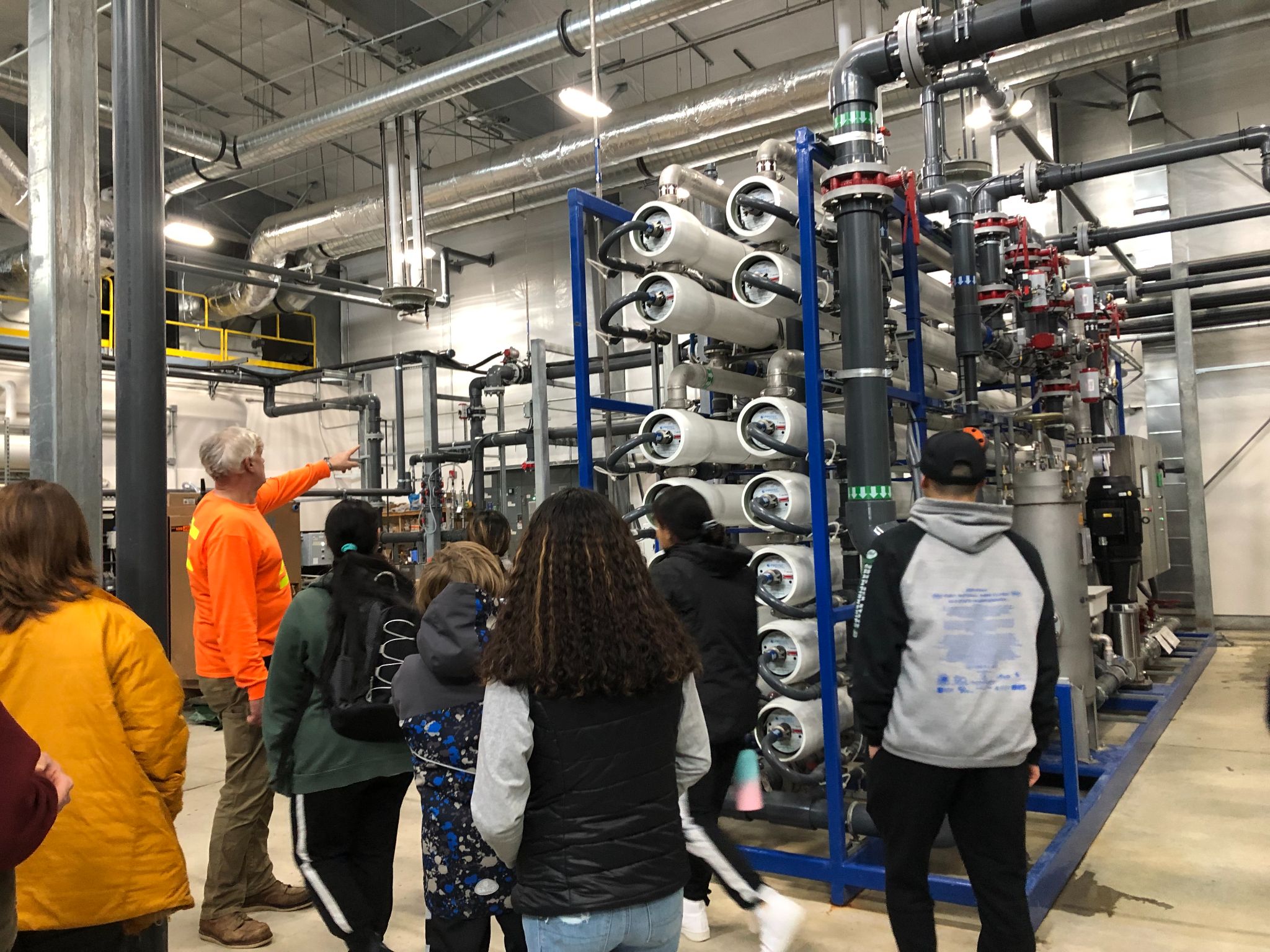UAF’s T3 Alliance Launches Educational Partnership in Kotzebue

A team of ACEP and Teaching Through Technology Alliance members traveled recently to Kotzebue for a T3 kickoff event at the Alaska Technical Center. ACEP’s George Reising, with Alaska fellows Savannah Crichton and Gracie Farnham, spent four days teaching high school students, meeting community members and networking with the school district’s educators.
Clay Beck and Merle Green, both teachers at ATC, were introduced to T3 this August in Fairbanks during a remote community onboarding event, part of The ARCTIC Program’s Innovation Network.
The Alaska Regional Collaboration for Technology Innovation and Commercialization program is an Office of Naval Research-funded collaboration designed to promote commerce and partnerships between Alaska and the Arctic and Pacific regions through advancements in energy through resiliency research, technology development/deployment and education.
Beck and Green were excited about bringing T3 programs to high school students from the Northwest Arctic Borough through the ATC’s ReadiSTAR Program. Reising, Crichton and Farnham piloted an engaging week of play-based technology curriculum with the students. They also wanted to equip Beck and Green with the confidence, tools and resources to incorporate T3 teaching methodology and curriculum into their classrooms.
Throughout the week, students from Northwest Arctic Borough communities of Kivalina and Deering met professionals and educators specializing in health care, carpentry, veterinary studies, process technology and renewable energy. The group took field trips to Kotzebue’s new water treatment plant and the Kotzebue Electric Association’s wind and solar farm. Learning about the energy landscape of Kotzebue was eye-opening to the juniors and seniors currently considering their options after high school.
In the T3-facilitated sessions, everyone created their own battery-powered robots, learned about growth mindset, controlled drones and built their own Raspberry Pi computers. Reising led the group through the basics of programming, teaching students how to complete a circuit, use code to designate inputs and outputs, and build complex programs to control multiple sensors.
At the end of the week, students filled out surveys to reflect on their experiences. The coding lessons made a big impact, as students said “programming” most frequently when asked to name not only for the most exciting but also the most challenging part of the week. As ACEP’s learning designer fellow and T3’s program engineer, Crichton and Farnham plan to iterate the curriculum to make the lessons more accessible and contextualized for both students and coaches.
The team left Kotzebue with a greater understanding of the community stakeholders in both energy and education. Having gotten to work with such incredible students, Reising, Crichton and Farnham see huge potential for T3 in Kotzebue to expand students’ technological expertise through locally partnered design challenges.
For more information on the T3 Alliance and its work in remote communities, please contact George Reising at gbskrabareising@alaska.edu.
Students and teachers from the Alaska Technical College in Kotzebue tour the community’s new water treatment plant. Photo by Savannah Crichton.


